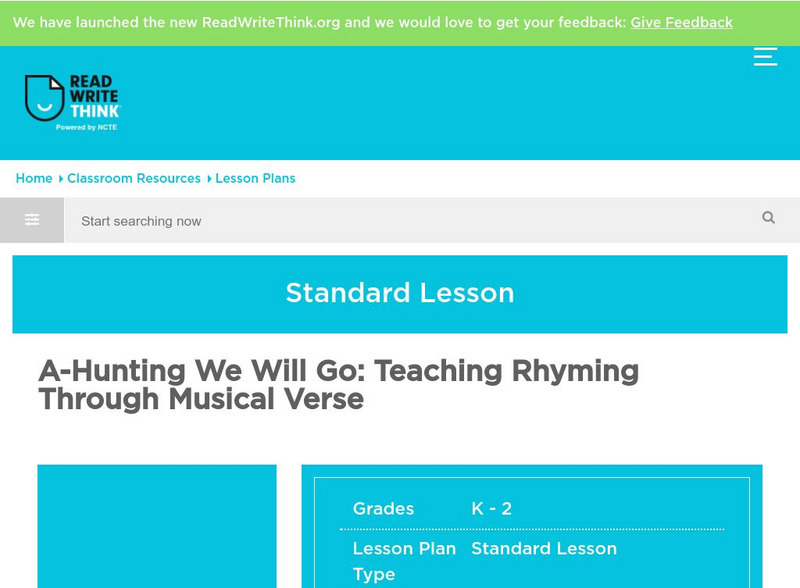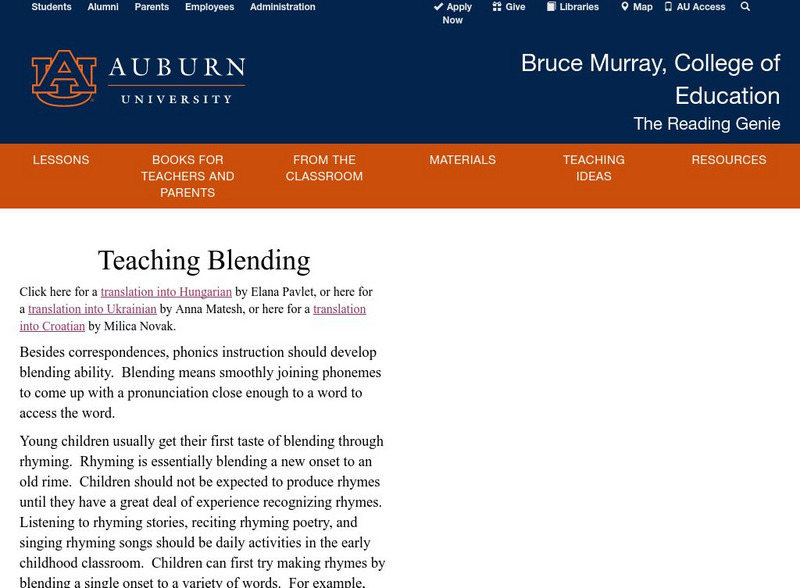Quia
Quia: Rhyme Time Match Up
These interactive games ask students to "Find matches of rhyming words," Games come in three formats: "Matching, Flashcards (Java / non-Java), Concentration."
ReadWriteThink
Read Write Think: A Hunting We Will Go Teaching Rhyming Through Musical Verse
Contains plans for two lessons that teach about rhyming words using the song "A-Hunting We Will Go." In addition to objectives and standards, this instructional plan contains links to sites used in the lessons as well as assessment and...
PBS
Pbs Kids: Super Why: A L L Rhyming Words Worksheet [Pdf]
Print this worksheet for your students while teaching a rhyming/spelling unit. Student will fill in the beginning sound using picture clues to make a word ending in A-L-L. [Requires Adobe Reader.]
Quia
Quia: Rhyme Time Picture Match Up
"Click on the pictures of words that rhyme (i.e., dog-frog; hat-cat)." Games come in four formats: "Matching, Flashcards, Concentration, Word Search."
Los Angeles County Office of Education
Teams: Distance Learning: Rhyming Words Activities
A K-1 lesson plan from TEAMS Distance Learning. "Students will practice rhyming words and also be able to identify words that rhyme. These lessons will have them active."
Auburn University
Auburn University: Teaching Blending
How do you teach your students to develop a blending ability through phonics instruction? This site features information to help get you started in your quest for this goal. According to this article you can begin with rhyming. Come and...
Los Angeles County Office of Education
Teams: Distance Learning: Recognizing Rhyme
This site from the TEAMS Distance Learning provides a K-1 activity: "Quick test you can give your students to see if they can tell when words rhyme and when they do not."




![Pbs Kids: Super Why: A L L Rhyming Words Worksheet [Pdf] Activity Pbs Kids: Super Why: A L L Rhyming Words Worksheet [Pdf] Activity](https://content.lessonplanet.com/knovation/original/135807-6d69da26bef95f93b78240a13bbbe018.jpg?1661514917)



